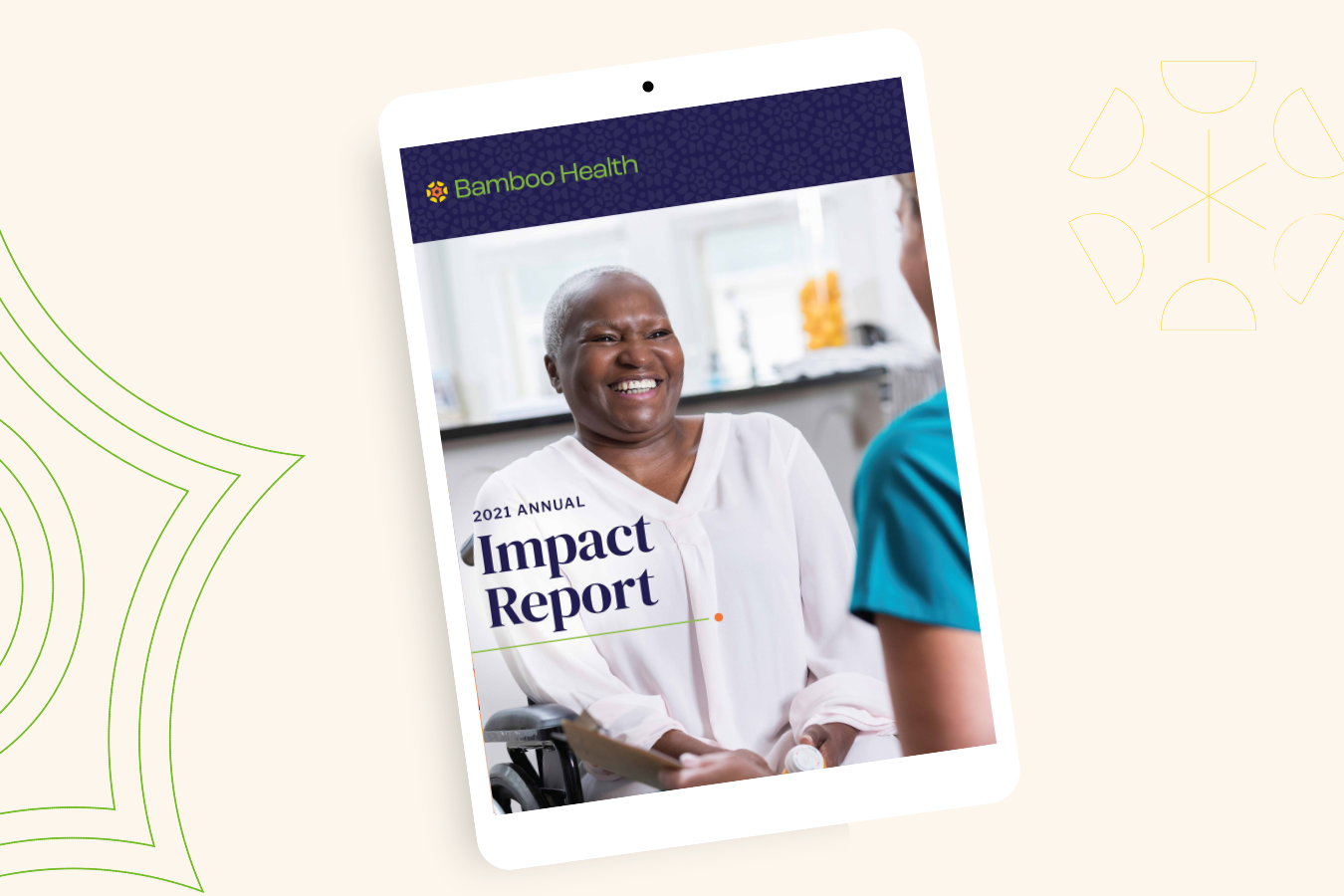For Bamboo Health’s February Knowledge for Good webinar, we tackled a timely topic that will soon impact all Americans. On July 16, 2022, individuals will be able to call or text an easy-to-remember, three-digit number, 988, to be connected with trained mental health professionals at 180+ regional crisis centers. The goal of 988 is for it to be the behavioral health version of 911.
While the new number will go into effect regardless of any other efforts, many states are using the opportunity to change how they respond to mental health crises to better serve and help their citizens. In the webinar, one of Bamboo Health’s state government market leaders, Alycia Sepe, BSN, RN, helped sort out best practices for 988 crisis implementation, where states stand in readiness, and how our OpenBed’s Crisis Management System is being utilized to help states with their rollout.
Behavioral health has received more intense attention in recent years in our country, with mental health conditions contributing to grim and staggering numbers, including more than 104,000 Americans who died of drug overdoses in the last year. The COVID-19 pandemic has worsened the mental health outlook while behavioral health treatment providers have been strapped for resources. At the same time, stigma around mental health has decreased, contributing to more people seeking support.
In 2020, federal legislation passed to establish 988 as America’s Suicide Prevention and Mental Health Crisis Lifeline while the Federal Communications Commission adopted rules to implement the transition with the deadline to implement being July 16, 2022. In the two years since, work began to ready the number itself (i.e., transitioning numbers that began with 988 to new numbers) as well as states passing legislation to help support funding and infrastructure for improved crisis response, particularly as demand is expected to grow, with the goal of meeting citizens’ mental health needs and diverting them from emergency departments and law enforcement to care aligned with their needs.
According to the Substance Abuse and Mental Health Services Administration (SAMHSA), core services and best practices for implementing a crisis response include:
- No wrong door access: No matter how the concern comes in, it should be properly rerouted.
- Regional Crisis Call Center: Staffed 24/7 by clinical professionals available via phone, text, or chat.
- Crisis Mobile Team Response: Trained teams who can respond timely to an individual’s location.
- Crisis Receiving and Stabilization Facilities: Short-term observation and stabilization in a home-like, non-hospital environment.
A successful crisis management system should (SAMHSA):
- Standardize crisis care processes and quality
- Promote suicide prevention as a core component of healthcare services
- Focus on resolving mental health and substance use disorders
- Decrease psychiatric bed overuse and eliminate emergency department boarding
- Decrease drain on law enforcement
- Decrease fragmentation of behavioral healthcare
But, as highlighted in a December 2021 article in STAT News, “Many states aren’t ready for a 988 crisis line. The deadline is looming.” The author says, “The 988 call system holds great promise for offering all people facing mental health or substance use emergencies the appropriate support, services, and responses to get care and treatment. But that can’t happen until states roll it out effectively. If some states aren’t prepared to roll out 988, or have weaker infrastructure or support for it, the country would end up with a system that perpetuates inequities in mental health access rather than reduces them.”
Bamboo Health is partnering with several states as a technology partner to meet best practices for their 988 rollout and beyond through our OpenBeds Crisis Management System solution. It provides:
- Real-time Impact: Quickly identify and refer patients to the right inpatient or outpatient treatment facility directly from the cloud-based module.
- Mobile Dispatch with GPS-enabled Functionality: See the proximity and availability of mobile crisis units, dispatch them, and conveniently communicate a patient’s information directly from the module—expediting the referral process.
- Tracking Capability: Track mobile crisis services via GPS on one dashboard and behavioral health services on a second dashboard, providing flexibility for patient referrals.
- Bi-directional System to Support a Digital Referral Process and Information Sharing: Avoid frustrating and time-consuming manual processes, make digital referrals, and learn whether a patient is a “Show” or “No-show.”
- Data Dashboards with Real-time Outcomes: View clear dashboards with real-time data around crisis call dispatches and response times, referral to treatment and access outcomes, and general use of the system.
- Monitoring and Interfacing with a Bed Tracking Inventory System: Connect to providers and organizations in your state and close more treatment loops with bed capacity data from crisis stabilization units, group homes, inpatient SUD treatment programs, opioid treatment programs, and many more.
Learn more by viewing the 30-minute entire webinar.





